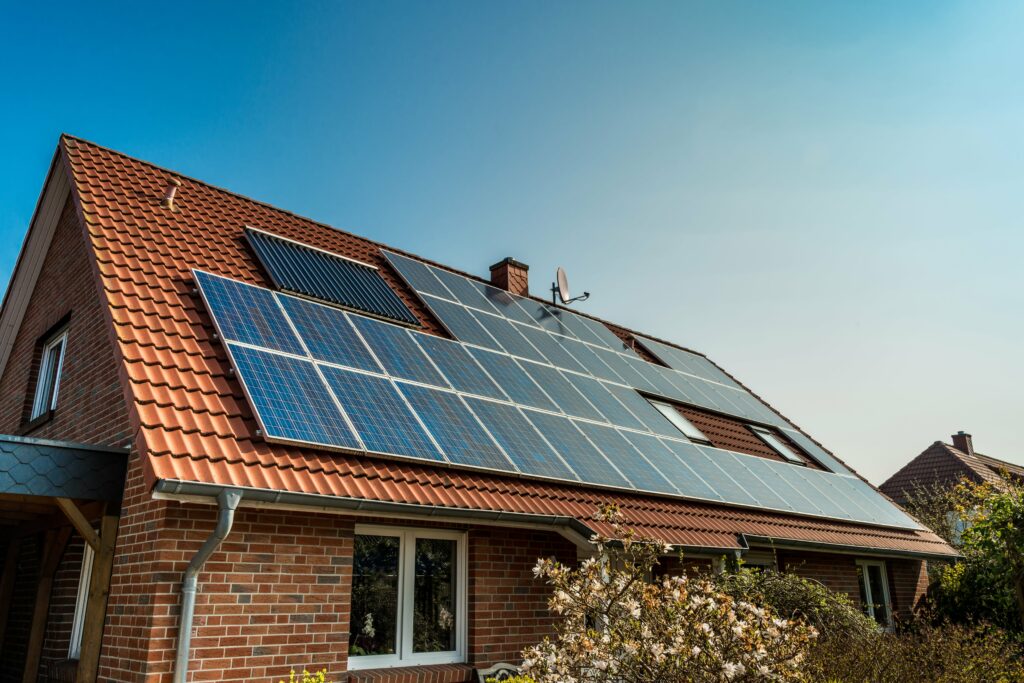In an age where sustainability and energy efficiency are becoming increasingly important, many homeowners in Wrexham are considering solar panels. This guide will provide you with everything you need to know about solar panels, including cost implications, payback periods, suitability for your home and available funding assistance.

The Basics of Solar Panels
Solar panels, or photovoltaic (PV) panels, convert sunlight into electricity. They are typically installed on rooftops and can significantly reduce your energy bills while decreasing your carbon footprint. The technology has advanced considerably in recent years, making solar panels more efficient and affordable.
Cost Implications and Payback Period
Installation Costs
The cost of installing solar panels varies depending on several factors, including the size of your system, the type of panels used and installation complexity. On average, a typical residential solar panel system might cost between £4,000 and £8,000. This price includes the panels, inverter, mounting equipment and installation.
Payback Period
The payback period for solar panels is the time it takes for the savings on your energy bills to equal the initial investment. For most homeowners, this period ranges from 6 to 10 years. Several factors influence this, such as the amount of sunlight your home receives, your energy consumption and whether you can benefit from government incentives.
Long-Term Savings
After the payback period, you effectively receive free electricity for the remaining lifespan of the panels, which is typically around 25 years. This can result in substantial savings over time. Additionally, if your system generates more electricity than you use, you can sell the excess back to the grid through the Smart Export Guarantee (SEG) scheme, further enhancing your return on investment.
Is Your Home Suitable for Solar Panels?
Roof Orientation and Angle
The suitability of your home for solar panels depends largely on the orientation and angle of your roof. South-facing roofs are ideal as they receive the most sunlight throughout the day. However, east or west-facing roofs can also be effective, though they may produce slightly less energy. The optimal angle for solar panels is between 30 and 45 degrees.
Roof Condition
Your roof should be in good condition to support solar panels. It’s recommended to have a roof inspection before installation to ensure it can handle the additional weight and to identify any potential issues that might need addressing.
Shading
Shading from trees, chimneys or other buildings can significantly reduce the efficiency of your solar panels. It’s important to assess your roof for any potential shading issues before installation.
Funding Assistance Available
Government Incentives
The government offers several incentives to help reduce the cost of solar panel installations. The Smart Export Guarantee (SEG) scheme allows homeowners to earn money by exporting excess electricity back to the grid. While the SEG rates are set by energy suppliers and can vary, they provide a useful income stream for solar panel owners.
Loans and Financing Options
Many companies offer financing options for solar panel installations, allowing you to spread the cost over several years. These loans often come with low interest rates, making it easier to afford the initial investment.
Environmental Benefits
Installing solar panels not only provides financial benefits but also has a positive impact on the environment. Solar energy is a renewable resource, meaning it doesn’t deplete over time. By generating your own electricity, you reduce your reliance on fossil fuels, which helps to lower greenhouse gas emissions and combat climate change. Solar panels offer a myriad of benefits, from reducing your energy bills to contributing to a more sustainable future. By understanding the costs, payback periods and suitability of your home, you can make an informed decision about whether solar panels are right for you. Additionally, taking advantage of available funding assistance can make the transition to solar energy more affordable.








